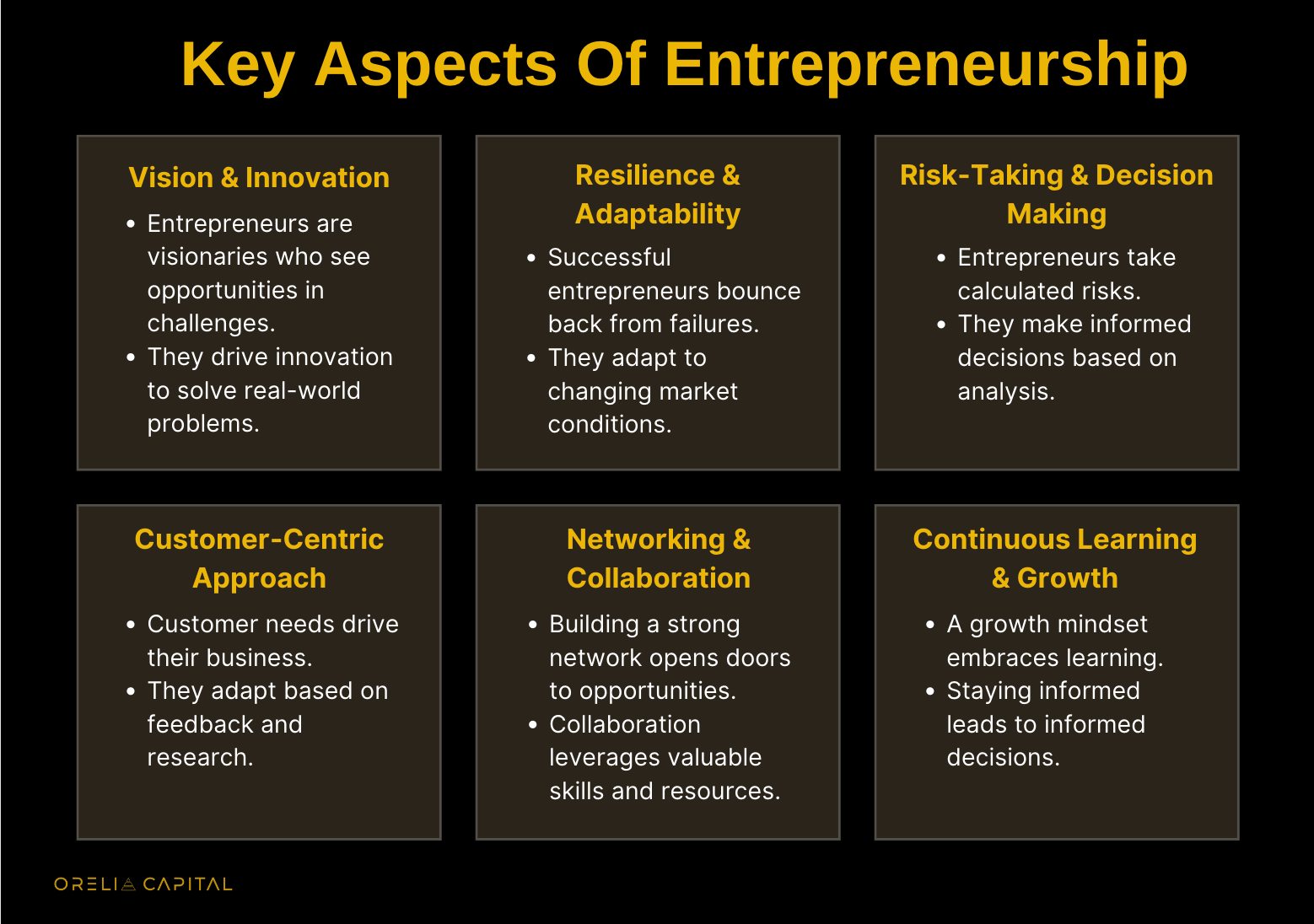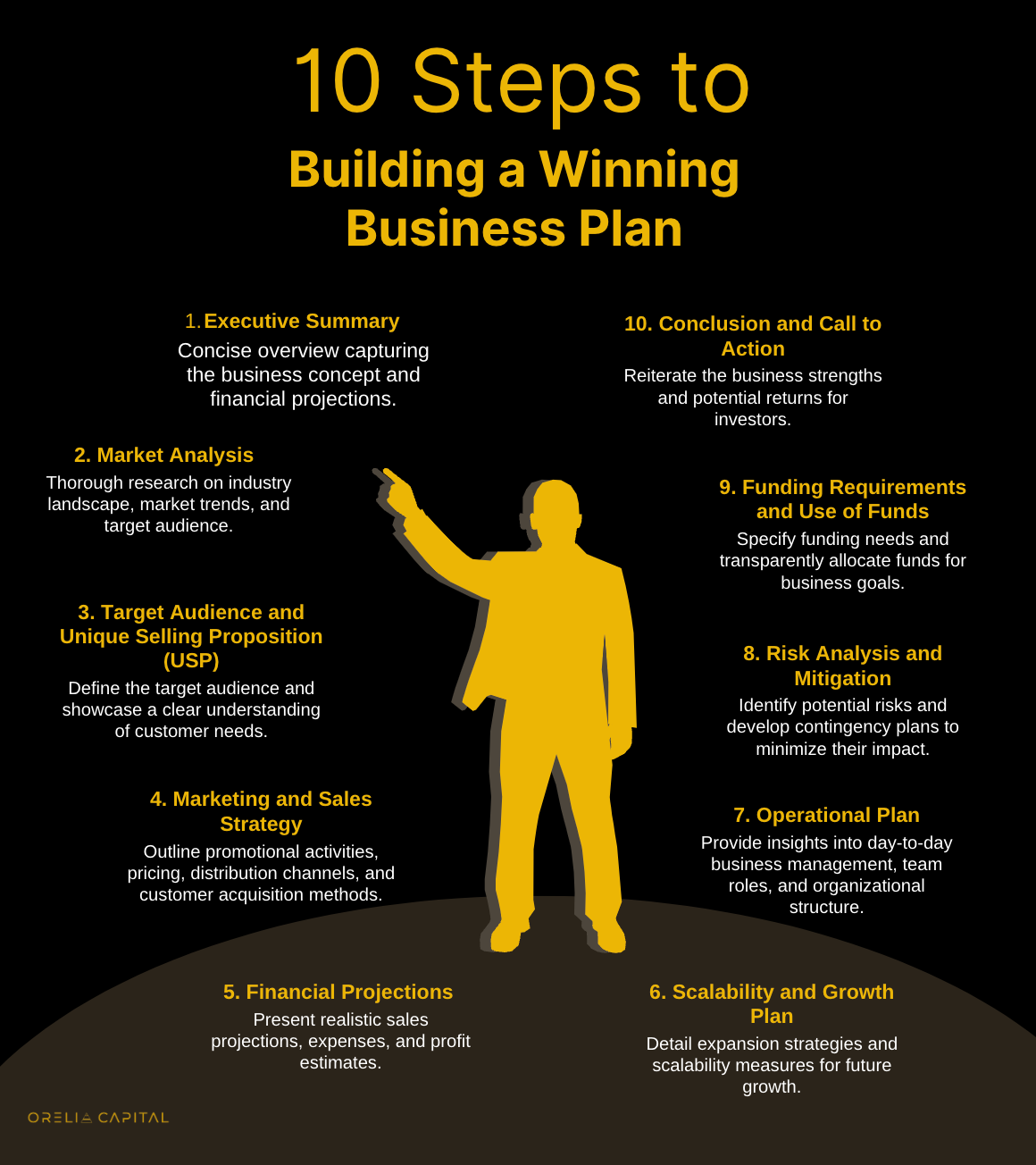Entrepreneurship: Creating Wealth through Business Ventures

Entrepreneurship is a gateway to creating wealth and realizing your dreams. Successful entrepreneurs possess a unique mindset and characteristics that set them apart. In this article, we will explore the critical aspects of entrepreneurship and provide valuable insights on identifying profitable business opportunities, securing funding, building a winning business plan, conducting market research, implementing effective marketing strategies, managing finances, scaling up your business, overcoming challenges, and drawing inspiration from success stories.
The Basics of Entrepreneurship:
Entrepreneurship is more than just starting a business; it's a mindset and a way of approaching life and business challenges. Successful entrepreneurs possess unique characteristics that enable them to navigate the complexities of the entrepreneurial journey. Understanding these fundamentals can lay a strong foundation for aspiring business owners.

Identifying Profitable Business Opportunities:
Identifying profitable business opportunities is the foundation of successful entrepreneurship. It requires a keen understanding of market dynamics, consumer behaviour, and a knack for innovation. By recognizing emerging trends and addressing unmet needs, entrepreneurs can create ventures that generate wealth and make a positive impact. Here are vital steps to help you spot lucrative opportunities:
Research Market Trends:
- Stay updated on industry trends and macroeconomic shifts.
- Identify emerging markets or segments with growth potential.
Analyze Consumer Behavior:
- Understand target audience preferences and purchasing patterns.
- Identify areas where existing solutions fall short.
Observe Competitors:
- Analyze the strengths and weaknesses of existing competitors.
- Identify gaps in the market where competition is limited.
Seek Innovation Opportunities:
- Leverage emerging technologies or innovative business models.
- Consider how to improve existing products or services.
Consider Societal and Environmental Impact:
- Assess how your idea can contribute to sustainability and social responsibility.
- Consider trends in eco-friendly products or ethical sourcing.
Evaluate Scalability and Market Timing:
- Assess long-term growth potential and market timing.
- Consider the scalability of your business idea.
Funding Your Business Venture:
Securing funding for your business venture is one of the most critical steps in turning your entrepreneurial vision into reality. While the idea and passion are essential, adequate financial resources are crucial to kickstart and sustain your business. Let's explore various financing options available for aspiring entrepreneurs:
- Personal Savings: Using your savings is one of the most common ways entrepreneurs fund their startups. This approach demonstrates your commitment and belief in your business idea.
- Bank Loans: Traditional bank loans are a well-established financing option. However, getting approved for a loan may require a solid business plan, collateral, and a strong credit history.
- Angel Investors: In exchange for equity, Angel investors invest their funds in early-stage startups. Apart from financial support, angel investors often provide valuable advice, mentorship, and access to their networks.
- Venture Capital: Venture capital firms invest in startups with high growth potential in exchange for equity. Be prepared for a more rigorous evaluation process and more involvement from the investors.
- Crowdfunding: Crowdfunding platforms allow entrepreneurs to raise funds from many individuals, each contributing a small amount. To learn more, check out this article by Orelia Capital.
Building a Winning Business Plan:
A well-crafted business plan is the foundation upon which successful ventures are built. It serves as a roadmap, guiding entrepreneurs through every step of their business journey. A winning business plan attracts investors and stakeholders and provides clarity and direction to the entrepreneur.

Effective Marketing Strategies for Small Businesses:
- Know Your Target Audience: Conduct market research to identify your ideal customers and understand their needs, preferences, and pain points.
- Embrace Digital Marketing: Leverage digital platforms such as social media, websites, and email marketing to reach a wider audience at a lower cost.
- Utilize Search Engine Optimization (SEO): Optimize your website and content to rank higher in search engine results, driving organic traffic.
- Harness the Power of Content Marketing: Develop valuable and informative content (blogs, videos, infographics) that showcases your expertise and solves customer problems.
- Implement Referral Programs: Encourage satisfied customers to refer your business to others by offering incentives or discounts.
- Collaborate with Influencers and Partners: Partner with influencers or complementary businesses in co-hosting events, webinars, or promotions to reach new audiences and enhance credibility.
- Leverage Customer Testimonials and Reviews: Showcase positive reviews and testimonials from satisfied customers on your website and social media.
Scaling Up Your Business:
Scaling up a business is a pivotal stage that involves expanding operations and increasing profitability. It allows entrepreneurs to reach a broader market, enhance brand recognition, and realize substantial growth. However, this phase also brings new challenges requiring careful consideration and strategic planning. As you aim to expand your operations and increase profitability, consider the following strategies and reviews:
- Evaluate Readiness: Ensure a strong foundation and adaptable systems for growth.
- Define Objectives: Set clear growth targets and milestones for progress.
- Seek Partnerships: Collaborate strategically to leverage resources and expertise.
- Embrace Technology: Invest in scalable solutions to streamline operations.
- Acquire Top Talent: Identify and hire skilled individuals aligned with your vision.
- Optimize Operations: Streamline processes to enhance efficiency and cut costs.
- Expand Markets: Research and adapt to new target audiences.
- Plan Finances: Create a robust financial plan and explore funding options.
- Prioritize Customer Experience: Deliver exceptional service to foster loyalty.
- Manage Risks: Identify potential challenges and develop contingency plans.
Conclusion:
Although building a business is not the only way to attain financial freedom, it is undoubtedly one of the ways to achieve it. Entrepreneurship offers a pathway to wealth creation and personal fulfilment. By understanding the fundamentals, identifying opportunities, securing funding, conducting market research, implementing effective marketing strategies, managing finances, scaling up, overcoming challenges, and learning from success stories, aspiring entrepreneurs can confidently embark on their journey and increase their chances of creating sustainable business ventures.

We hope you enjoyed this edition of our newsletter. If you found it helpful, please consider sharing it with others who might benefit from this information.
At Orelia Capital, we believe that feedback is a gift. Your feedback can help us improve our content and provide more value to our readers.





